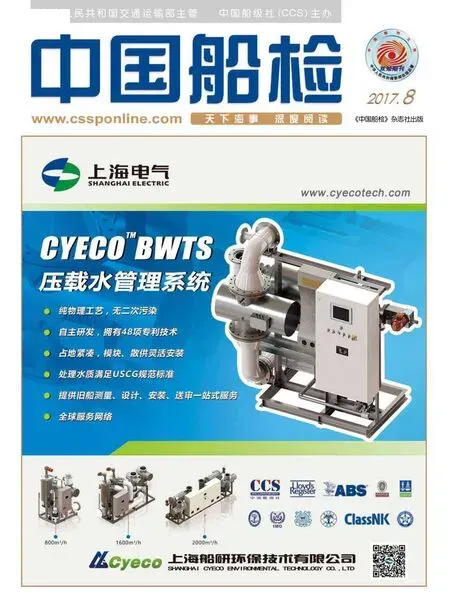The influence of the development of intelligent ships on the international maritime conventions
By Cai Yuliang & Ma Jilin
The influence of the development of intelligent ships on the international maritime conventions
By Cai Yuliang & Ma Jilin
O n the 2017 World Transportation Conference held recently, the experts are almost invariably put the chips of “future traffic” on “unmanned shipping”. To the shipping industry, “artificial intelligence + ship” has also been given great hope. Intelligent ships and unmanned shipping is the development trend of the shipping industry. Obviously, this trend will promote the international maritime conventions to adjust accordingly.
The current maritime convention framework is mainly divided into three categories, the first category is concerned with the jurisdiction rules, which regulates the rights and obligations of the flag states and the ship, and its representative convention is the “United Nations law of shipping”; the second category is concerned with ship technical condition and operational condition’s compliance with safety of navigation, marine pollution prevention, and basic rights guarantee of the crew etc., the representative conventions include “SOLAS”“MARPOL”, “international regulations for preventing collisions at sea”, “International Maritime Labour Convention” and etc.; the third category is concerned with the civil liability caused by ship accidents, and the representative conventions include the “International Convention on civil liability for oil pollution damage”,“Convention on limitation of liability for maritime claims” etc.
From the above we can see that when the intelligent ship is still in the first and second development stage, the framework of current convention and rules can still be applied. When entering the third and fourth stage and the intelligence of the ship has greatly improved, the most signif i cant change is the sharp reduction of the number of ship crew, even nobody on board, and the ship’s navigation mainly rely on shore based remote control, even autonomous navigation. This fundamental change may lead to the existing framework of conventions and rules not satisfying the requirements, such as: firstly, the def i nition of the ship itself may no longer be applied in some conventions and rules. Secondly, the division of civil liability resulting from the ship's accident will become controversial. Thirdly, the structure of the ship will be changed since it is no longer necessary to consider human factor in design. The change of many related conventions and rules will have influence on the technical regulation framework which is now only applicable to current ships.
At present, the International Maritime Organization (IMO)has drawn up more than 50 effective conventions and regulations for global ratif i ed nations to use. The ratif i ed nations must observe these conventions and rules. At the same time, these conventions and rules will also be transposed into the laws of each nation. The development of intelligent ships must be supported by conventions and rules. The revision of conventions and rules aimed at covering intelligent ships will be a complex, huge and even subversive work.
Many countries have deeply realized that the development of intelligent ship needs the support of conventions and rules applicable. Nine countries including Estonia, Finland, Denmark, Japan, Holland, Norway, South Korea, the United Kingdom and the United States and others have jointly proposed the “maritime autonomous surface ship (MASS) to define the supervision scope”, expecting the ninety-eighth session of MSC to approve the new work plan. Two groups in Europe are working on amending the regulations to adapt to the development of unmanned intelligent ships. One of them is the safety and regulation group of European unmanned maritime system, which is composed of Sweden and six other countries. The other is the supervision working group of British Maritime autonomous system. Their goal is to ensure that the SOLAS will reflect the development of new technologies during its next revision.
CCS has been committed to the research work of intelligent ships, and is the first classification society to issue the “Rules for Intelligent Ships” in 2005. CCS has set up a special project team to deal with the development of intelligent ships, the work of which duly includes special research on the applicability of the conventions and regulations for unmanned intelligent ships.

